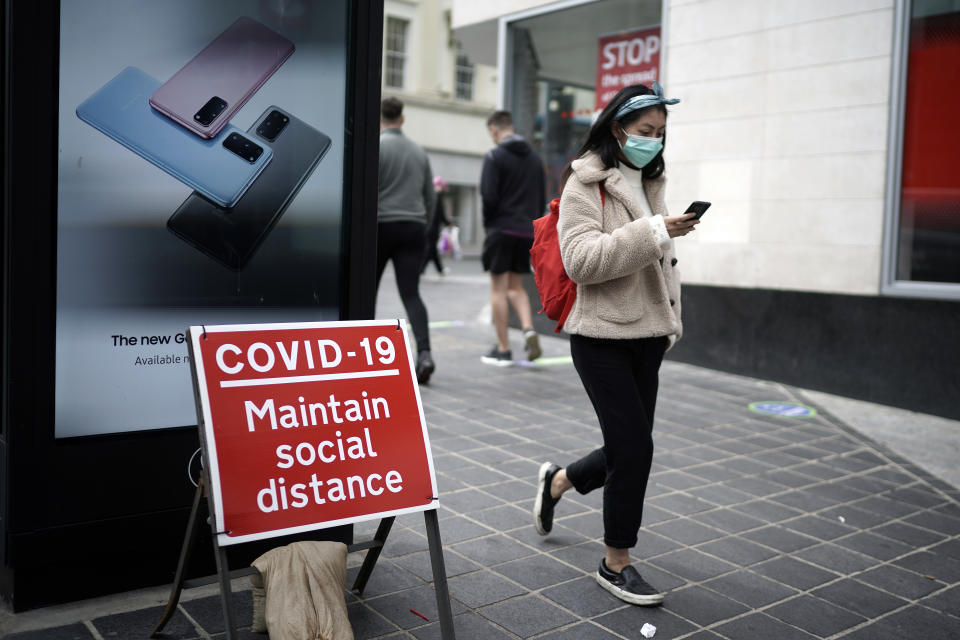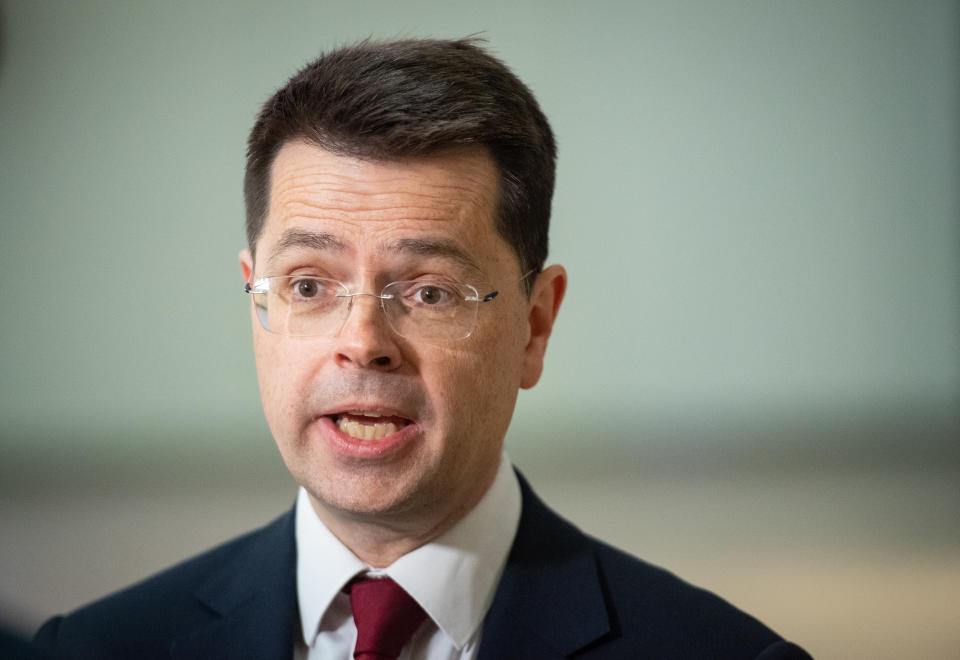Second coronavirus wave 'not inevitable', says UK minister

A second coronavirus wave is “not inevitable”, security minister James Brokenshire has said.
His comments come as Boris Johnson was set to announce an extra £3bn in funding for the NHS to prepare for a possible second wave of the pandemic.
The funding is hoped to allow extra hospital capacity while also allowing routine treatments and procedures to continue.
But speaking on Sky News, Brokenshire said: “I’m not the scientific or medical expert here, the others will provide their informed position.
“The point is that this is predicated somehow on the basis of an inevitability of the second wave of the virus. That absolutely is not inevitable.”

His comments come a day after the government’s chief scientific adviser warned that coronavirus is likely to keep returning “over a number of years”.
Sir Patrick Vallance told MPs at the Commons science and technology committee on Thursday: “There’s a very high likelihood that come winter, we will see an increase in cases.
“You could argue that’s the tail-end of the first wave coming back.”
He became the latest top scientist to warn COVID-19 will probably be a long-term feature of people’s lives.
Fellow scientific adviser Professor John Edmunds, who attends meetings of the government's Scientific Advisory Group for Emergencies (Sage), previously said the British public are “probably right” to be pessimistic about the prospects of a second wave.
His comments came after a poll found that almost half (48%) of 2,000 adults surveyed expect a second spike in winter, leading to another nationwide lockdown.
Scientists have warned that a fresh coronavirus outbreak in the winter could be even worse than the first peak and cause up to 120,000 deaths in a worst-case scenario.
A report by the Academy of Medical Sciences said the ”reasonable worst-case scenario” to prepare for is a reproduction rate (known as the “R” value) of 1.7 from September.
However, leading public health expert Devi Sridhar — who advises Nicola Sturgeon on her coronavirus policy - appeared to agree with Brokenshire.
Don’t agree with fatalism that there will be waves & waves of the virus & we are all doomed. Policies can prevent a second wave. There is a path to eliminate the virus w/border control & get society, economy & health going. That’s a deliberate choice. But requires cooperation. https://t.co/7jo20479Fx
— Devi Sridhar (@devisridhar) July 16, 2020
She tweeted: “Don’t agree with fatalism that there will be waves & waves of the virus & we are all doomed. Policies can prevent a second wave.
“There is a path to eliminate the virus w/border control & get society, economy & health going. That’s a deliberate choice. But requires cooperation.”
On Friday, Boris Johnson was set to commit to a new target of reaching the capacity for 500,000 coronavirus tests a day by November, alongside the extra funding for the NHS which would allow private hospital capacity to be used and for Nightingale hospitals to be maintained until the end of March.
A Downing Street spokesman said the immediate funding for England was new and not previously allocated, while expenditure would be set out for the devolved nations in due course.
Johnson was also expected to publish an additional chapter to the Government’s “road map” for recovery from the crisis.
Coronavirus: what happened today
Click here to sign up to the latest news and information with our daily Catch-up newsletter

 Yahoo News
Yahoo News 

